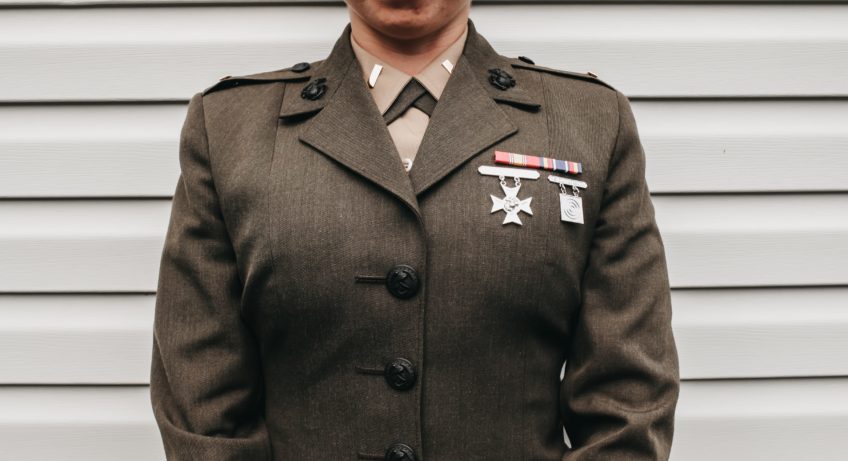The US is currently the third hardest-hit country in the ongoing coronavirus epidemic. With a total number of cases nearly approaching 70,000 and a death toll of more than 1,000, our country is facing one of the most severe crises in recent history. While authorities are struggling to contain the spread of the virus, people are trying to cope the best way they can with this health threat and protect themselves and their beloved ones. However, not all people are exposed to the same risks if they become infected and veterans are one of the groups at higher risk. Further on, we are going to focus on the potential impact COVID-19 can have on veterans and the prevention methods they can adopt.
Veterans and the Risks of Exposure to the Coronavirus
While all people are virtually exposed to the same likelihood of contracting the novel coronavirus, the real concern is what happens after they become infected. In some individuals, the disease behaves like regular flu which means they don’t even require hospitalization. In others, COVID-19 can lead to life-threatening consequences such as pneumonia, respiratory failure or organ failure. People who suffer from chronic illnesses and the elderly are the groups that present the highest risk of developing serious complications if they are also diagnosed with COVID-19. Unfortunately, many veterans belong to both these categories, which makes them particularly vulnerable.
People who served in the US army are often diagnosed with different chronic illnesses, as they were exposed to a series of toxic substances during their service. Those who have been diagnosed with chronic respiratory illnesses are the most affected because COVID-19 also manifests itself in the respiratory system where it produces an infection which leads to breathing difficulties.
Asbestos exposure, for example, represents one of the common causes that triggered chronic respiratory illnesses in veterans. Asbestos was a great insulator and it was therefore used in all the army’s departments during the 20th century, despite its dangerous impact on human health. This substance is now known to cause various respiratory illnesses such as asbestosis, lung cancer or mesothelioma.
Back in the 30s and later on, roughly until the mid-70s asbestos was present everywhere in the US army. If you worked in the Navy, you could have easily been exposed to asbestos as it was widely used in building the Navy’s ships. If you worked for other branches of the military, there were still high chances of asbestos exposure. Those who served the army were required to live for months in bases where asbestos was used in the pipes, flooring or roofing. Virtually, all the other branches of the military were equally affected as asbestos was present everywhere, in the vehicles, tanks and equipment service members used.
Other toxic substances that were commonly used by the military starting the 60s were PFAS or polyfluoroalkyl substances such as PFOS and PFOA. These substances have been linked to several types of cancer and other serious medical conditions. The most common source of exposure to PFAS among veterans was AFFF or aqueous film-forming foam, a highly efficient fire-suppressant foam. This hazardous product was widely used in the military as part of the firefighting training, but also in emergency situations. Once released, AFFF contaminated the water sources near the military bases, thereby affecting the health of those who used it. The Navy and the Air force were two of the branches of the US military that were most frequently exposed to AFFF during their training and operations.
Nowadays, these veterans who already suffer from serious conditions that have a strong impact on their quality of life are also more at risk in case they test positive for the new and potentially-life threatening coronavirus.
Precautions for Veterans During the COVID-19 Pandemic
Since there is widespread concern among veterans and their families due to the continuous growth of confirmed coronavirus cases and the number of correlated fatalities, veterans are advised to take extra precautionary methods. These are meant to protect them from contracting the virus, but also to protect their families and caregivers and they include the following:
- Wash your hands frequently with soap for at least 20 seconds
- Use an alcohol-based hand sanitizer to sanitize your hands when it is not possible to wash them
- Disinfect all the surfaces you frequently touch as the virus can linger on them and spread the infection
- Cover your nose and mouth with a clean tissue when you cough and put it in the bin immediately after
- Make sure to use high quality disposable gloves such as the ones from Unigloves.
- Try to avoid going out as much as possible and, if it is absolutely necessary to go out, choose the shortest route so that you minimize the chances of getting exposed
- If you suffer from a disease that requires constant check-ups, discuss with your health care professional and see if it is recommended to continue going to the hospital/clinic
- Avoid contact with people who cough or sneeze or have other flu-like symptoms
Moreover, if you are starting to report any signs such as cough or fever that might indicate an infection with the coronavirus, call the closest VA facility immediately and schedule an appointment. At the same time, until your diagnosis is confirmed, and you know if you are carrying the virus or not, it is safe to avoid contact with other people.
VA Support
The VA is offering its full support to veterans nationwide during this health crisis and works in close collaboration with the Centers for Disease Control and Prevention to keep people updated on how the pandemic develops. More than 3,300 COVID-19 tests have already been administered and testing will continue. Therefore, veterans who meet the necessary criteria to be tested such as having been exposed to confirmed cases and having typical symptoms may access these tests.
At the moment, the VA is tracking more than 484 cases of veterans that have a confirmed COVID-19 diagnosis and they will continue to monitor the situation and provide updates.
Any veteran who believes he or she was exposed to the virus and present the typical symptoms is able to ask for support and guidance by calling the VA or sending the VA a secure message via My HealtheVet. It may also be possible to use the heath chat option to communicate with your VA facility.
The VA recommends veterans to call first before going to any of their facilities. Also, take note that if you go to the VA, you will be screened for symptoms that might indicate the presence of the virus before you may enter. Urgent medical procedures for patients with chronic diseases or other illnesses will be carried out as planned. In case of non-urgent medical appointments, veterans may be contacted in order to postpone them. This is an additional measure of minimizing the risk of a possible infection that comes from commuting to and from a medical facility during the outbreak. Veterans who decide to cancel procedures that don’t represent an emergency can do this from their VA.gov account.
During this critical period in which the risk of infection with the coronavirus grows continuously, visitors who want to see a patient in a VA facility are urged to postpone the visit especially if they present any of the typical flu symptoms.
Veterans who are seniors and suffer from an underlying health issue require extra care and protection during this critical period. We are going through an unprecedented health crisis, but by adopting the necessary precautionary methods and making sure any signs of COVID-19 are promptly reported, we can protect our veterans and help them win this war too.
About the author:
Gregory Cade is the owner and founder of Environmental Litigation Group,P.C an Alabama law firm that focuses on helping people file personal injury claims related to occupational or environmental exposure. With a comprehensive experience of more than 20 years, Gregory’s team of attorneys have helped thousands of veterans nationwide file claims for diseases that were triggered by exposure to toxic substances during their military service.

